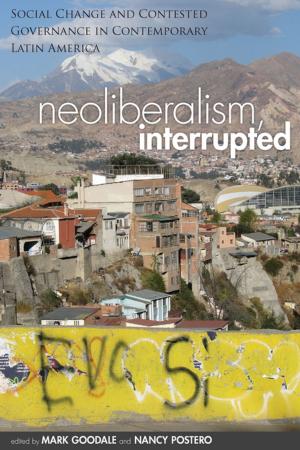Of Medicines and Markets
Intellectual Property and Human Rights in the Free Trade Era
Nonfiction, Social & Cultural Studies, Social Science, Sociology| Author: | Angelina Snodgrass Godoy | ISBN: | 9780804786577 |
| Publisher: | Stanford University Press | Publication: | June 5, 2013 |
| Imprint: | Stanford University Press | Language: | English |
| Author: | Angelina Snodgrass Godoy |
| ISBN: | 9780804786577 |
| Publisher: | Stanford University Press |
| Publication: | June 5, 2013 |
| Imprint: | Stanford University Press |
| Language: | English |
Central American countries have long defined health as a human right. But in recent years regional trade agreements have ushered in aggressive intellectual property reforms, undermining this conception. Questions of IP and health provisions are pivotal to both human rights advocacy and "free" trade policy, and as this book chronicles, complex political battles have developed across the region.
Looking at events in Costa Rica, El Salvador, and Guatemala, Angelina Godoy argues that human rights advocates need to approach intellectual property law as more than simply a roster of regulations. IP represents the cutting edge of a global tendency to value all things in market terms: Life forms—from plants to human genetic sequences—are rendered commodities, and substances necessary to sustain life—medicines—are restricted to insure corporate profits. If we argue only over the terms of IP protection without confronting the underlying logic governing our trade agreements, then human rights advocates will lose even when they win.
Central American countries have long defined health as a human right. But in recent years regional trade agreements have ushered in aggressive intellectual property reforms, undermining this conception. Questions of IP and health provisions are pivotal to both human rights advocacy and "free" trade policy, and as this book chronicles, complex political battles have developed across the region.
Looking at events in Costa Rica, El Salvador, and Guatemala, Angelina Godoy argues that human rights advocates need to approach intellectual property law as more than simply a roster of regulations. IP represents the cutting edge of a global tendency to value all things in market terms: Life forms—from plants to human genetic sequences—are rendered commodities, and substances necessary to sustain life—medicines—are restricted to insure corporate profits. If we argue only over the terms of IP protection without confronting the underlying logic governing our trade agreements, then human rights advocates will lose even when they win.















